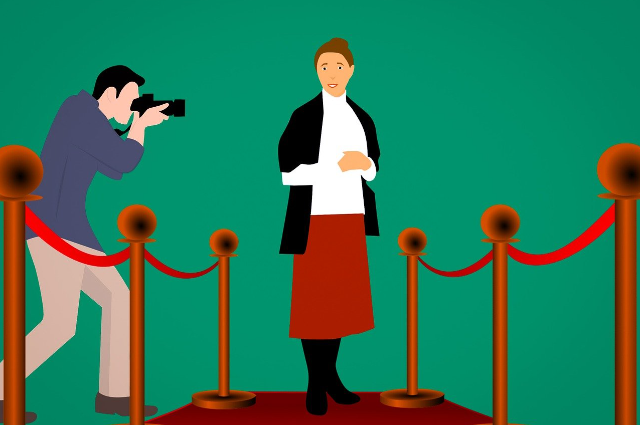
Scroll through any social media feed today, and you’ll see a dazzling stream of red carpets, luxury holidays, gym selfies, and behind-the-scenes snippets. Celebrities appear magnified yet strangely ordinary, their lives seemingly within reach. But here’s the question: is this reality—or a carefully orchestrated illusion we’re meant to believe?
As with most things in the celebrity world, the truth lies in complexity.
The Making of a Star
Celebrities aren’t born; they’re built. Talent matters—whether it’s an actor’s range, a singer’s voice, or an athlete’s unmatched skill. But behind every star lies a machinery of PR agents, stylists, managers, and media strategists shaping how they’re seen.
Wardrobes are curated to project success or relatability. Social media posts are carefully planned to highlight certain aspects of life while concealing others. Even “candid” paparazzi photos are sometimes staged to create intrigue or distract from scandals.
What the public sees isn’t the person but the persona—a brand designed to sell films, music, endorsements, or ideas.
Social Media: Authenticity or Performance?
Platforms like Instagram and TikTok promised intimacy between fans and stars—morning routines, no-makeup selfies, “just like you” captions. But even these raw glimpses are often filtered performances.
That pajama selfie? Likely styled and edited. That casual cooking clip? Filmed in a luxury-sponsored kitchen. Psychologists call this performative authenticity—deliberately staged imperfection to create the illusion of realness, while still controlling the narrative.
We think we’re seeing reality, but often it’s just another act.
Parasocial Relationships: Why We Buy the Illusion
Why do fans believe in this illusion? The answer lies in parasocial relationships—a one-sided emotional attachment to media personalities. You may never meet your favorite actor, but you feel like you know them: their laugh, their quirks, their heartbreaks.
Sharing a pet photo or posting about personal struggles deepens this false intimacy. Fans mourn celebrities as though they were family and fiercely defend them online. The line between admiration and attachment blurs.
The Hidden Struggles Behind the Spotlight
For stars, the illusion comes at a price. Fame often forces individuals to bury their authentic selves beneath their public avatars.
Britney Spears—her struggles revealed the crushing weight of pop perfection.
Robin Williams—a comedian hiding deep depression.
Sushant Singh Rajput—smiling one day, gone the next.
Fame magnifies wealth and attention but strips away the freedom to simply be human.
Psychology of Idolization
Celebrity culture thrives on an ancient instinct: humans have always admired heroes, kings, and mythological gods. Today’s celebrities are modern-day icons—embodiments of success, beauty, and aspiration.
But this worship feeds billion-dollar industries—fashion, cosmetics, endorsements—while also warping public perception. When people confuse curated images for reality, it creates unrealistic standards of beauty, success, and happiness.
When the Mask Slips
Occasionally, reality breaks through—a leaked video, a courtroom scandal, or an unscripted meltdown. Sometimes, fans respond with empathy. Other times, fame collapses overnight.
In either case, the cracks remind us of one truth: celebrity is always a performance, even when it looks unfiltered.
The Future of Celebrity Culture
The illusion may only deepen. Virtual influencers created by AI already command millions of followers, offering flawlessness without risk. At the same time, audiences crave more “real” voices—through podcasts, livestreams, and unedited vlogs.
The future might lie between curated glamour and raw truth—or in a fully artificial stardom.
Conclusion: Truth in the Age of Illusion
So, is celebrity culture real or an illusion? The answer lies somewhere in between. Celebrities are real people, with flaws and struggles like anyone else. But what the public sees—photos, interviews, curated social media—is a carefully managed performance.
Ultimately, celebrity culture is a mirror. It reflects not only their constructed lives but also our desires—for beauty, power, success, and stories larger than life. Celebrities are not just people; they are symbols. And symbols, by nature, lean more toward illusion than truth.
